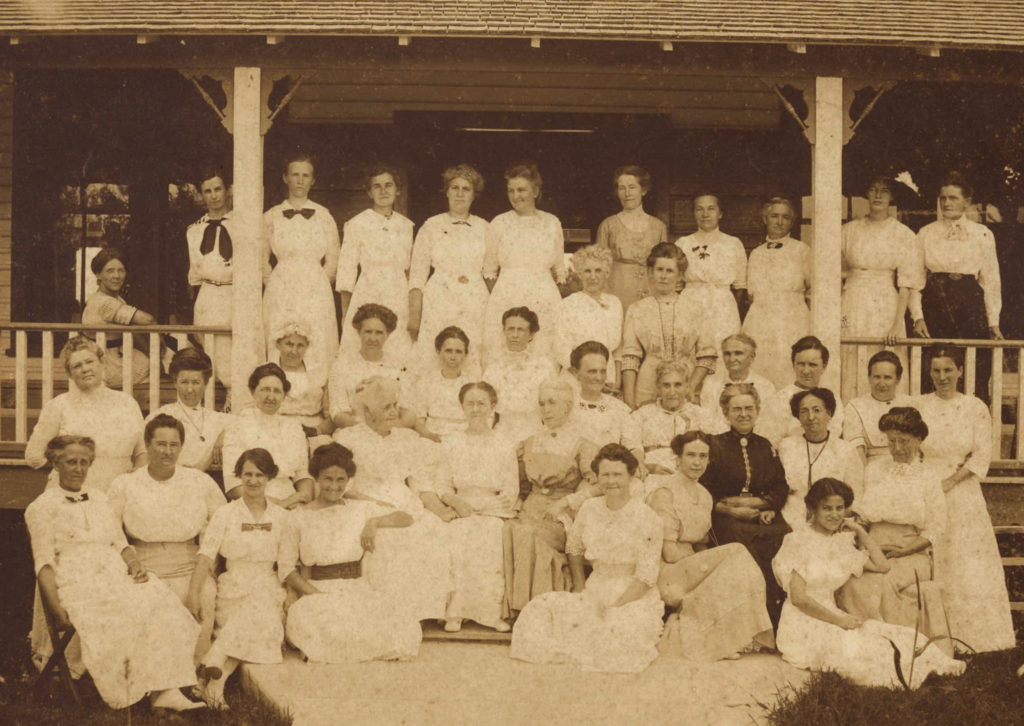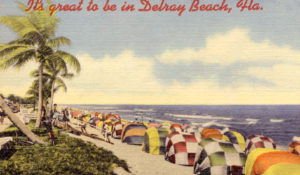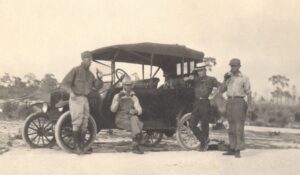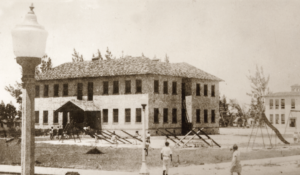By Kayleigh Howald
The Ladies Improvement Association
In 19th century Florida’s undeveloped wilderness, women and men alike were dedicated to their families’ survival. Multiple first-person accounts describe women working in the fields to clear the land and care for livestock and crops, alongside their husbands and fathers. Although men are often credited with settling Florida’s east coast, the communities themselves were developed by the work and ingenuity of women.
On February 28, 1902, a group of enterprising women founded the Ladies Improvement Association with the purpose of developing infrastructure for the burgeoning village. Early members included several prominent women within Delray’s community: Ellen Sherwood, Elta E Sherman, Nellie Blackmer, Gertrude Zeder, Lucy Chapman, Mary Sterling, Elizabeth Sundy, Anna McRae, Frances Tenbrook, Elizabeth Lane, Ina Helena Haygood, Marie Pedersen, Anna Eliason, Jessie McLeod, and Sarah Tasker.
Working for Cold Hard Cash
In addition to membership dues of five cents per meeting, the Ladies Improvement Association raised money by selling a variety of goods. They often took commissions for dresses, bathing suits, baby sacks, and corset covers, as well as shirts and nightshirts for “bachelors and widowers” for 25 cents each. At the meetings, the women sewed thick canvas mittens and leggings for pineapple harvesters. They also made aprons for butchers and masons, and seed bed covers for farmers. The women sold embroidery, candy, cakes, sauces, butter, peanuts, nutmeg, cloves, and fish.
Ice cream socials, however, were the society’s most successful money-making endeavor. The ladies sold ice cream at different events and areas throughout town, including the packing houses and railway station. These sales were not without their difficulties, namely mosquitoes. According to one recollection, “When we were selling the cream the mosquitoes were so thick that someone had to keep a brush waving over the person dipping the cream.” While the ice had to be shipped in from West Palm Beach, the Ladies Improvement Association fully utilized it by renting the ice cream freezer to other residents for 25 cents a day.
After erecting the town hall in 1906, the Association rented the space for public meetings. While church societies could use the hall for free, other organizations paid up to $60 per year. For groups holding regular dances or banquets, the Ladies Improvement Association collected half the proceeds for each event. Furthermore, they established an ongoing tradition of serving banquets, receptions, and other social dinners to raise funds for community service projects and important causes impacting Delray Beach.
Through innovative and enterprising fundraising, the society raised money for a wide array of projects. Their first endeavor was a paved or “rocked” walkway down Atlantic Avenue, which was completed only five months after their first meeting. Following this project’s success, they replaced the lighter barges over the canal, established the town’s first cemetery, built a town hall, started the first newspaper, and built the first library. Additionally, the ladies organized clean-up days for the city, secured land from owners on Atlantic Avenue to widen the street and plant Royal Palms, took charge of beautifying the school grounds, helped fund the public school, promoted a community Christmas tree, and built the beach pavilion.
Public Health and Civic Engagement
Along with essential projects, the Ladies Improvement Association utilized their influence in the community to support causes related to public health, children and families, and civic engagement. Records show the society was frequently contacted by the Florida No-Fence League, an organization fighting to change laws surrounding free range livestock and eradicating the cattle tick. The No-Fence League and similar groups reached out to women’s associations throughout Florida and posited that free range cattle produced substandard milk, which would cause malnourishment in children, and unchecked livestock could trample citrus groves and fields. The Ladies Improvement Association was also contacted by the Florida Board of Health, who requested the group encourage their local officials and community to be vaccinated against typhoid and diphtheria. Furthermore, in 1921, the Ladies Improvement Association wrote to Florida senators Park Trammell and Duncan U. Fletcher asking them to support the Sheppard-Towner Maternity and Infancy Act (1921). The Sheppard-Towner Act provided federal aid to states for prenatal and infant healthcare and was designed to combat high infant and maternal mortality rates, especially in rural states.
Moreover, women in Delray actively fought for participation in local elections and municipal affairs. In their 1916-1917 annual report, the Ladies Improvement Association announced they won the right to vote in city elections. Delray was only the second city in Florida where women could legally vote (Zena Dreier of Fellsmere, Florida became the first woman to vote in both Florida and the South in June 1915). The right to vote became a great source of pride and the group continued to teach civic engagement through classes and workshops throughout the 1920s.
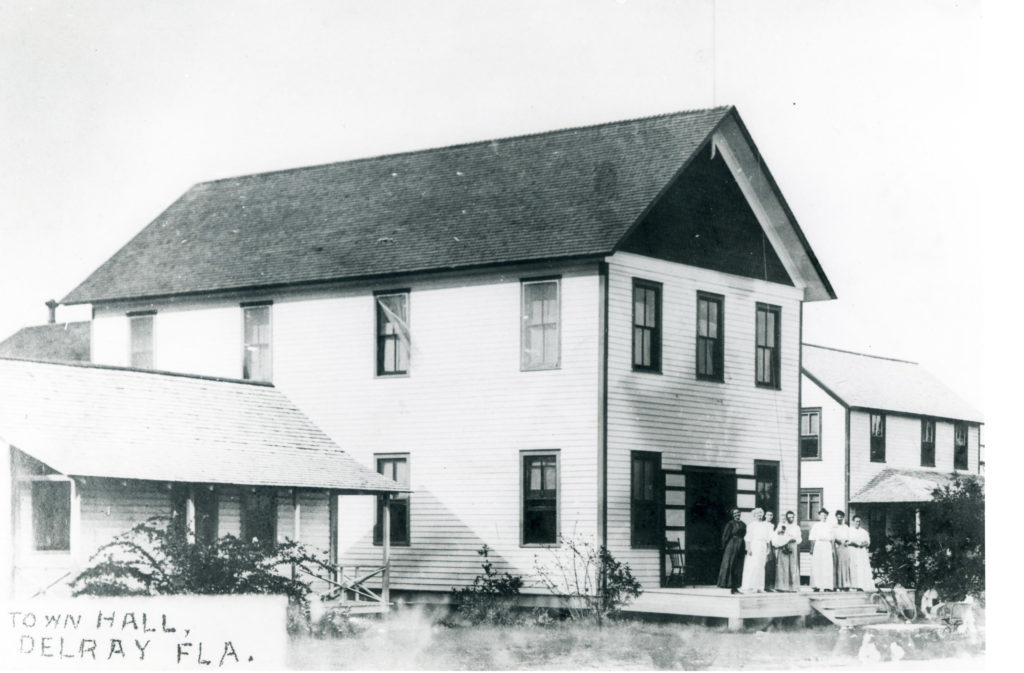
In November 1924, Ladies Improvement Association voted to change their name to the Woman’s Club of Delray Beach. Under this new name, women continued to work and support local and state issues, including hospitals, education, voting rights, civil rights, and the environment. Throughout its 121-year history, the Woman’s Club has remained a stalwart advocate for Delray Beach, Palm Beach County, and Florida. Each day, we enjoy and celebrate the organization’s early contributions to Delray Beach, but on International Women’s Day especially, we honor all women’s ongoing work in our local community and beyond.
Email the Archivist for questions or comments! [email protected]
